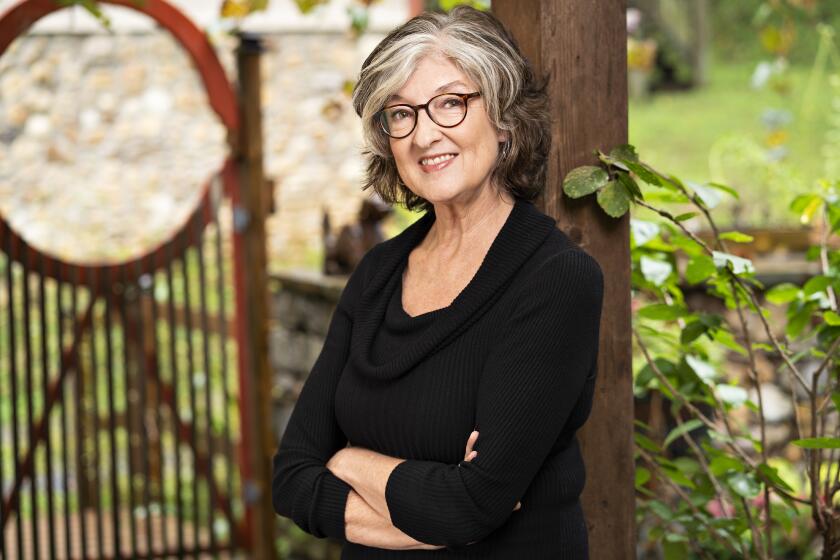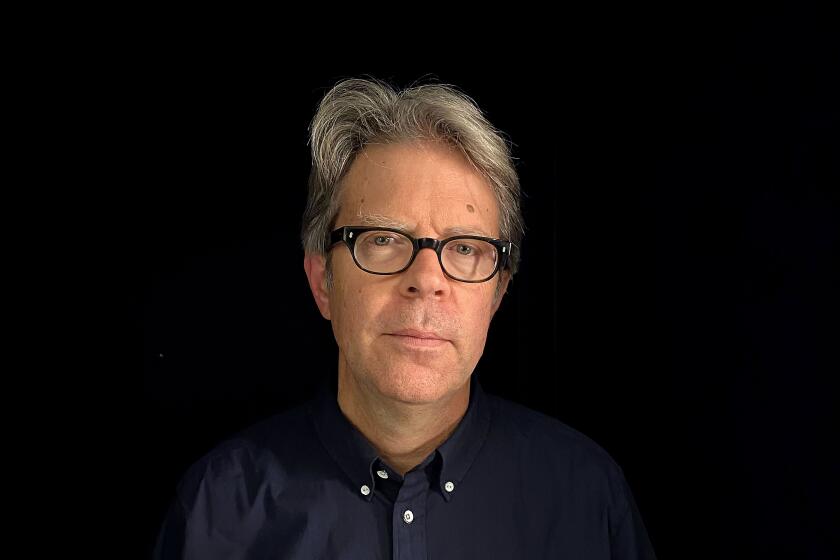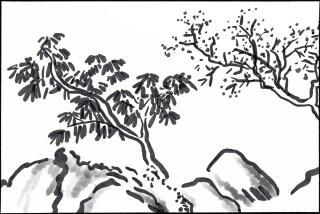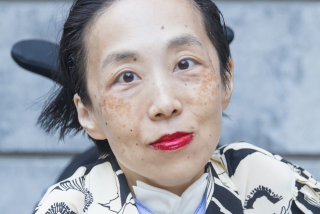Idra Novey’s new novel proves fiction can be worth a thousand think pieces
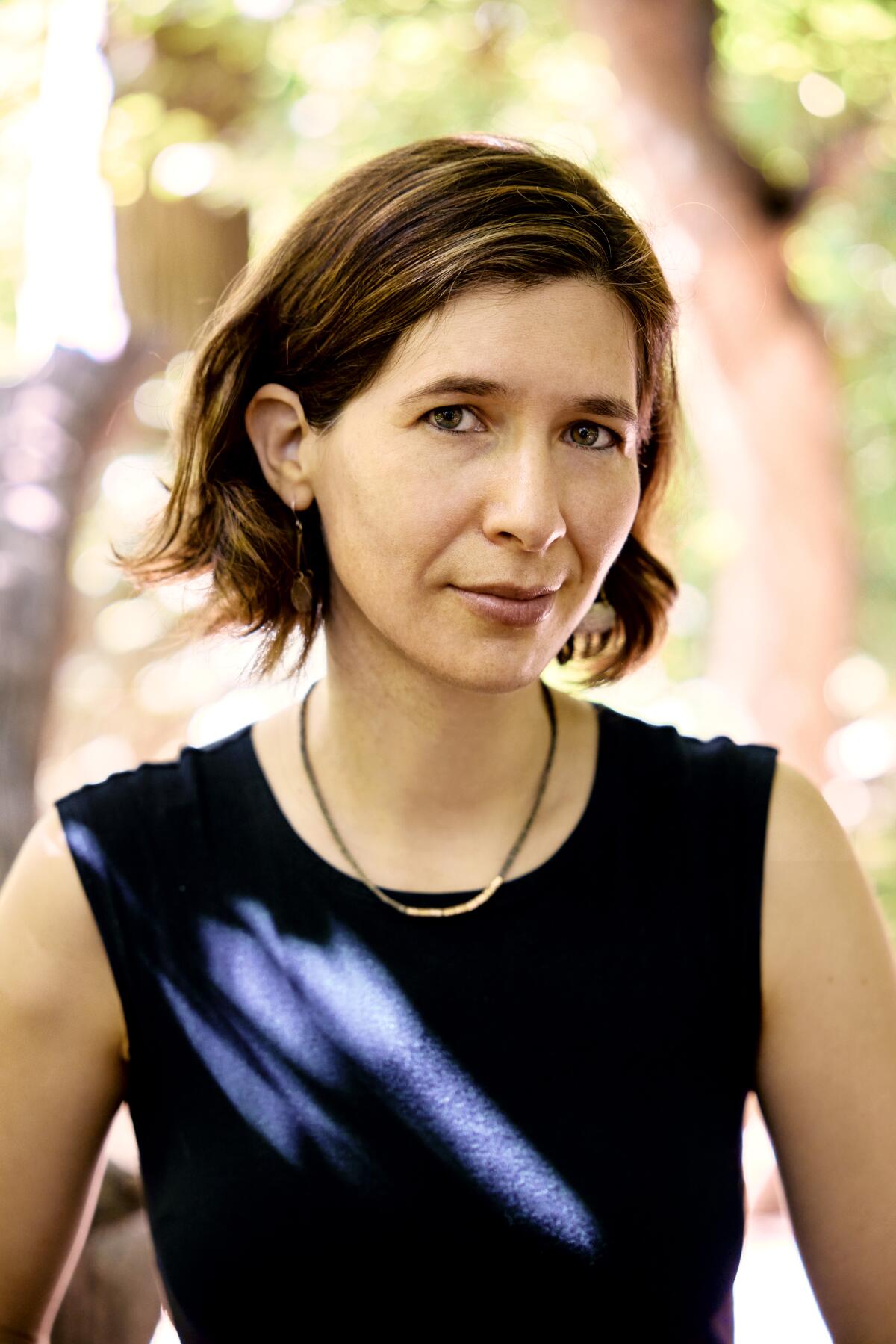
Review
Take What You Need
By Idra Novey
Viking: 256 pages, $28
If you buy books linked on our site, The Times may earn a commission from Bookshop.org, whose fees support independent bookstores.
It was Pliny the Elder who told us, “Home is where the heart is.” Perhaps he never had to know what it feels like when home is where your heart got broken, or where the people you left behind are now the people who scare you.
In her elegiac and unsettling new novel, “Take What You Need,” Idra Novey explores the anxious ambivalence provoked by such visits home from two perspectives: Leah and her stepmother, Jean.
Novey is a poet and a translator. Her 2018 novel, “Those Who Knew,” in which a politician’s rise to power is jeopardized by a past encounter with a woman, appeared in the thick of the Brett Kavanaugh confirmation hearings. It made her novel timely, but what made it stand out was Novey’s sensitivity and nuanced understanding of the stakes. Her follow-up is even better. It’s also timely in its way, a counterweight to certain narratives of Appalachia that strip their characters’ lives of joy and meaning while also bleaching out the stains of racism and class struggle. Its real subject is what it means to love, and what you’re willing to tolerate, even if it means separating yourself from home.
8 books you should read instead of “Hillbilly Elegy.”
“Take What You Need” opens as Leah, accompanied by her Peruvian husband, Gerardo, and their son, journeys back home for Jean’s funeral. One of her memories is of the fairy tales Jean read to her, which become portals to the alienation and loneliness Leah felt when her birth mother died.
Fairy tales tell us stepmothers are evil creatures, incapable of maternal love and care. “I hear … the rising pleasure in her voice when she read,” Leah recalls, “stopping to insist that she wasn’t like the stepmother in ‘Snow White,’ that she had no craving for my liver or my lungs.” Instead, Jean would say, “All I want is to nibble at your heart.” Leah gives up her heart to be consumed.
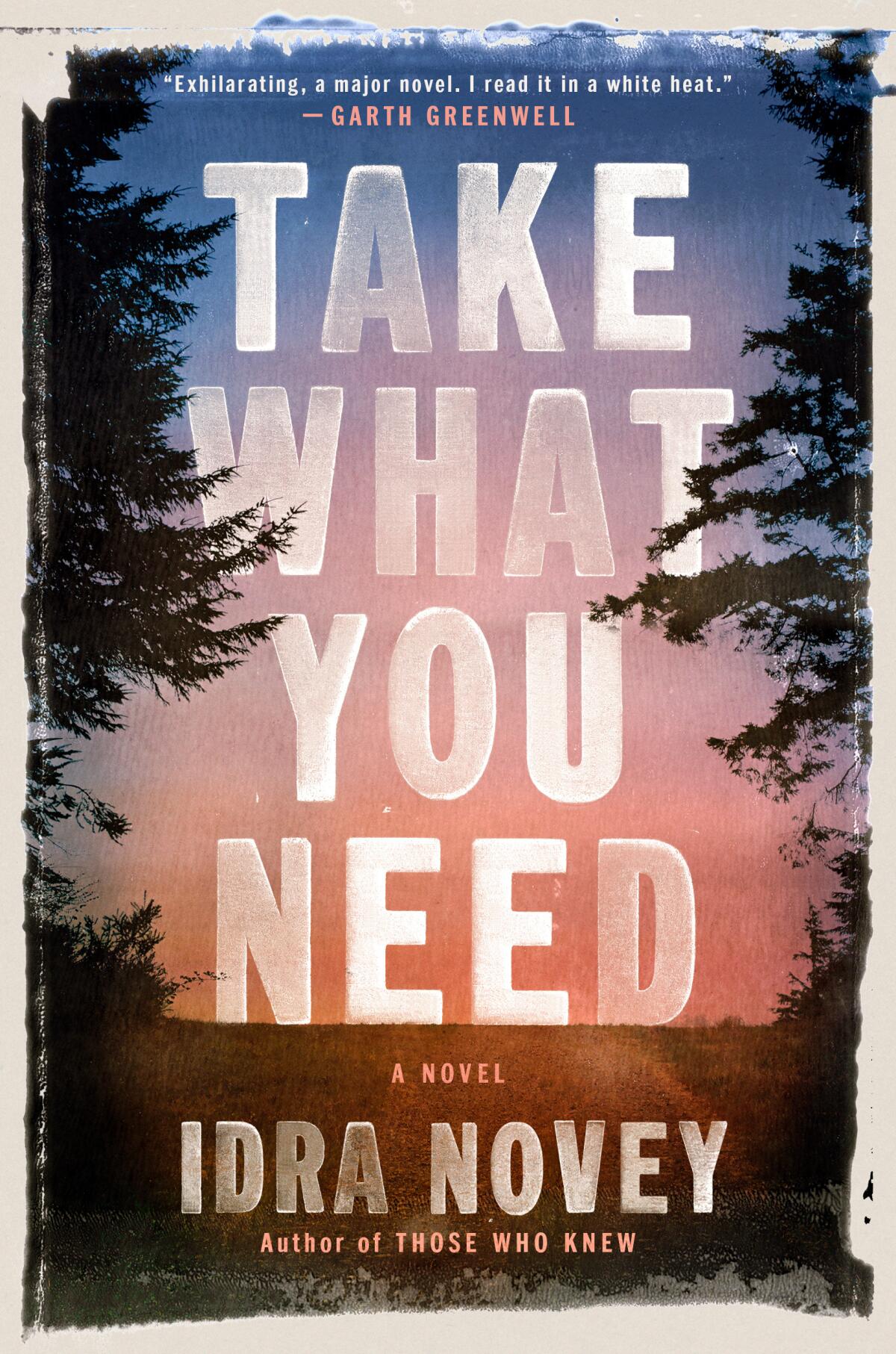
Years later, Leah won’t read fairy tales to her son. “It’s felt like a neat and necessary excision,” she explains, “leaving out Jean and the confusing appetites of those old tales. I’m fumbling enough already, ambling motherless into motherhood.”
Leah is lost in such thoughts, but when the family stops for gas shortly before arriving, the threat of home further unsettles her. At the gas station, wildly flapping flags with familiar political slogans snap her attention away from Jean. She is accosted by a woman angry that Leah is speaking Spanish to her family. The moment both enrages and terrifies her, conjuring the “madness of heartbreak” and disrupting the process of grief.
Novey alternates chapters in which readers hear the voices of Leah and Jean. As Leah draws closer to home, the author draws our attention to the ways the American flag — a symbol of e pluribus unum — has been weaponized, making it clear that Leah and her family are no longer welcome. But she must return in order to settle her stepmother’s affairs.
The “Poisonwood Bible” author on her career and her new novel, “Demon Copperhead,” which reboots “David Copperfield” in opioid-ravaged Appalachia.
Jean too once dreamed of escaping home. She longed to go to New York, to live and work among other artists. The daughter of a welder who dismissed her suggestions for his work as too “girly,” she eventually became a sculptor. Obsessed with such figures as Louise Bourgeois, she has kept her Jewishness from most of her neighbors, recognizing that their bigotry could easily turn on her. But rather than seeing the townspeople as threats, she feels pity for them, especially the young men.
“We had too many men ticking like that all over town, more than at any point in my life,” she thinks, “their stillness felt almost cultlike, all of them hunched over, praying to nothing, and the rest of us driving by, eyeing them with sadness and dread.”
One of those young men becomes her assistant, helping her with the heavy pieces of metal she stacks into towers and turns into art. Jean is a superbly written character, clearly burning with artistic desire. But her need for companionship leads to further alienation from her community — and from Leah.
Leah doesn’t share in her stepmother’s pity for those who remain in her hometown; she feels only alarm. She berates herself for the way her body stiffens when she sees young men who wear camouflage and stare at her family for too long.
When a frightening incident is apprehended by Leah and Jean in ways that speak of entirely different world views, it reveals what cannot be ignored. Mothers are supposed to provide safety, and Jean leaves Leah dangerously vulnerable. A confrontation tears apart the family bonds.
His new novel, ‘Crossroads,’ is extraordinary, immersive, even fun. But it makes you wonder what Franzen might accomplish if more were at stake
Now we get to the timeliness — and Novey’s knack for being on theme without ever being too on the nose. The rise of fascism and racism of the Trump years (and beyond) exposed sharp divisions over American dinner tables. Many articles counseled us on how to get through Thanksgiving with relatives who embraced conspiracy theories or cruelty.
Some asked where the red line might be: Should we refuse to meet with the unvaccinated? Insist on taking down offensive yard signs? Others wrote that family love should transcend politics, that public discourse could stop at the threshold. But such arguments presupposed fairy-tale versions of families, in which a child’s sexual identity or religious affiliation never leads to exile. In many families of origin, children had to choose between escape and erasure.
Leah, who escaped for college and eventually research in South America, has come home with real-life stakes in these divisions. The bigotry that persists among people who have themselves been shut out of the American dream manifests itself as potential bodily harm to those she loves. And so she is faced with a choice that has become all too common. Is our ultimate loyalty to the family in which we grew up? Or is it to the one we choose to make, through marriage or friendship or the communities we decide to live in?
The best fiction can explore such dilemmas more meaningfully than a thousand think pieces. Rather than present this choice as an empty intellectual exercise about “tolerance,” Novey takes readers to the limbic level, that instinctual site of emotions and stress hormones. She probes the tender wound turned septic in the 2020s. If tolerance calls for sacrifice, what are we willing to give up — or betray — to embrace the fairy tale of unity in family or country?
Berry writes for a number of publications and tweets @BerryFLW.
More to Read
Sign up for our Book Club newsletter
Get the latest news, events and more from the Los Angeles Times Book Club, and help us get L.A. reading and talking.
You may occasionally receive promotional content from the Los Angeles Times.
